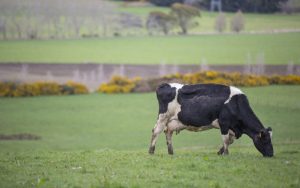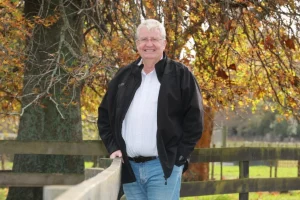
On Monday, Southland Fish & Game ranger Cohen Stewart blamed bad weather for a decrease in licence sales in the region this season.
However, farmers were quick to disagree online, many saying they had not bought a licence in protest against the organisation’s anti-dairying stance.
Bernadette Hunt, who farms north of Gore, said a dismal start to summer in the south wasn’t a factor in her family’s decision not to buy a licence.
The weather had nothing to do with our decision not to purchase a licence this year when we have done every year for the last 12. Put ?below if you didn’t purchase this year in protest… lets get the msg home and stop them making excuses…
https://t.co/TNf3G5916v— Bernadette Hunt (@behunt11) 7 de enero de 2019
Her sentiments were echoed by farmers around the country, some of whom had been paying the annual licence fee for decades.
I didn’t buy one in protest, first time in 25 years
— Paul Sinclair (@sincs1977) 7 de enero de 2019
Normally buy dad’s his licence for Christmas, explained why I didn’t and he decided not to buy it himself
— DairyMan (@dairymanNZ) 7 de enero de 2019
Hunt, who is vice-president of Federated Farmers in Southland, told Stuff farmers were frustrated with Fish & Game’s unbalanced approach to water quality issues.
“If there’s an issue that can be attributed to anything rural, they’re all over it but if it’s urban, Fish & Game is silent,” she said.
“It’s a political attack on farmers and I think if they were being more even-handed, farmers wouldn’t be so put out.”
Fish & Game national policy manager Robert Sowman said on Tuesday just under 70,000 fishing licences had been sold nationwide in the first three months of the season (October 1 to January 7).
That was a drop of around 6000 over the same period last year, however not all regions were seeing lower sales.
“For example, sales in the Nelson Marlborough region are up nearly 6 per cent, the West Coast is up two per cent and sales in Hawke’s Bay and Northland are about what they were last season,” Sowman said.
He also pointed to bad weather as a factor in the slower sales in some regions but said licences would continue to be sold through the fishing season up to September and based on last year’s figures, another 40,000 sales could be expected this season.
Fish & Game has had a strained relationship with dairy farmers since coining the phrase “dirty dairying” in the early 2000s.
Despite farmers’ efforts to improve environmental practices, the organisation had not relented in its criticism, Hunt said.
“Farmers have put a lot of time and money into things like fencing and planting waterways and adopting nutrient management plans but it takes time.
“We’re chipping away, we can’t do it all at once, but there should be recognition for the work that farmers are doing and they fact that not all water quality issues are farming’s fault.”
Hunt said Fish & Game had had a lot of opportunity for open discussion with farmers and industry representatives but it continued to deliver an anti-dairying message farmers didn’t want to fund.
“It doesn’t feel like the rhetoric from their national office matches with what we hear from locally-elected people,” she said.
“Many farmers feel like they act very politically and maybe if their political activity was separated from local activity on the ground, we might feel differently.”
An adult licence to fish for trout around the country (except in the Taupo district where licences are managed by the Department of Conservation) costs $130 a season.
A local licence to fish in a single region costs $104 and a family licence is $169.
Hunt usually purchased a family licence and although her children would be able to fish on their free individual licences this season, their parents wouldn’t be picking up a rod.
“I think there will be farmers who don’t buy a licence and still fish but others will sit it out,” she said.
“If the rhetoric changed, I think farmers would be quick to respond. I’d certainly give them credit if it was due and I could buy a licence next year if that was the case.
“But we want them to give credit to farmers where it’s due, too.”
Fish & Game’s national communications manager Don Rood said the penalties for fishing for freshwater sports fish like trout without a licence were heavy.
Illegal anglers could be fined up to $5000 dollars per offence and sentenced to community work. They could also forfeit their fishing equipment, which in extreme cases could include vehicles or boats.
Other charges could also be laid, including obstruction, and if an angler was found guilty, the Ministry of Justice recorded it as a conviction.
“This can harm an offender’s chances of travelling, with some countries like the United States taking a tough line on people wanting to enter the country who have any wildlife or fishing law convictions,” Rood said.
Fish & Game rangers were active around the country and compliance among anglers was high with around 95 per cent of those inspected following with the rules, Rood said.

























